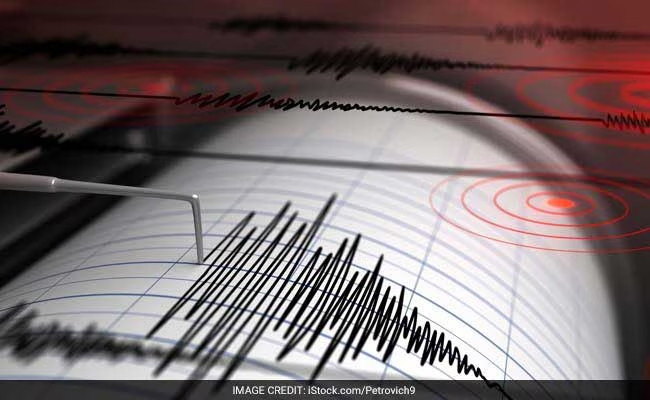
Quakes are common in Papua New Guinea, which sits on the a hotspot for seismic activity
Sydney:
A powerful 6.3 magnitude earthquake struck the highlands of Papua New Guinea on Saturday, the U.S. Geological Survey (USGS) said, as the region struggles to recover from a massive 7.5 quake only two months ago.
There were no immediate reports of damage or injury.The quake was 82 kms (51 miles) southwest of Porgera in Enga province and 47 kms (30 miles) deep, said the USGS. Earlier European quake monitor EMSC reported it at 6.5 magnitude and only two kms (1.2 miles) deep, but later scaled it down.
The earthquake happened just two months after a 7.5 quake struck the same highlands area, killing 125 people and leaving hundreds of thousands of people homeless.
February's quake also damaged mining and power infrastructure and led ExxonMobil Corp to shut its $19 billion liquefied natural gas (LNG) plant, the country's biggest export earner. Miners Barrick Gold Corp and Ok Tedi Mining also reported damage to infrastructure.
Some of the recourse companies in the region, such as Oil Search, are still about eight weeks away from full operations. Oil production at the Gobe field had already returned to normal.
The remote and mountainous region is struggling to recover from February's quake, which caused landslides that buried homes and cuts roads. The United Nations estimates that some 270,000 people are in need of immediate assistance and 43,116 people remain displaced in 44 locations and care centres.
The United Nations pulled out its aid workers just two days before the latest quake due to violence from residents. They have vowed to return once it is safe to do so.
Quakes are common in Papua New Guinea, which sits on the Pacific's "Ring of Fire", a hotspot for seismic activity due to friction between tectonic plates.
(Except for the headline, this story has not been edited by NDTV staff and is published from a syndicated feed.)
There were no immediate reports of damage or injury.The quake was 82 kms (51 miles) southwest of Porgera in Enga province and 47 kms (30 miles) deep, said the USGS. Earlier European quake monitor EMSC reported it at 6.5 magnitude and only two kms (1.2 miles) deep, but later scaled it down.
The earthquake happened just two months after a 7.5 quake struck the same highlands area, killing 125 people and leaving hundreds of thousands of people homeless.
February's quake also damaged mining and power infrastructure and led ExxonMobil Corp to shut its $19 billion liquefied natural gas (LNG) plant, the country's biggest export earner. Miners Barrick Gold Corp and Ok Tedi Mining also reported damage to infrastructure.
Some of the recourse companies in the region, such as Oil Search, are still about eight weeks away from full operations. Oil production at the Gobe field had already returned to normal.
The remote and mountainous region is struggling to recover from February's quake, which caused landslides that buried homes and cuts roads. The United Nations estimates that some 270,000 people are in need of immediate assistance and 43,116 people remain displaced in 44 locations and care centres.
The United Nations pulled out its aid workers just two days before the latest quake due to violence from residents. They have vowed to return once it is safe to do so.
Quakes are common in Papua New Guinea, which sits on the Pacific's "Ring of Fire", a hotspot for seismic activity due to friction between tectonic plates.
© Thomson Reuters 2018
(Except for the headline, this story has not been edited by NDTV staff and is published from a syndicated feed.)
Track Latest News Live on NDTV.com and get news updates from India and around the world

